Sensitive Skin? Here's How to Use Retinol for a Smoother, Glowing Complexion + Pros' Top 9 Product Picks
Retinol is often referred to as the gold standard ingredient in anti-aging skin care for smoothing out fine lines and wrinkles — plus, it can even help clear up acne. For those with sensitive skin, however, you may feel hesitant incorporating this sometimes harsh ingredient into your skincare routine. But fear not! We spoke to three skin experts about the best way to use retinol for sensitive skin and they shared the most gentle retinol products to use. Keep scrolling to see how you can get the benefits of retinol without irritation.
What is retinol?
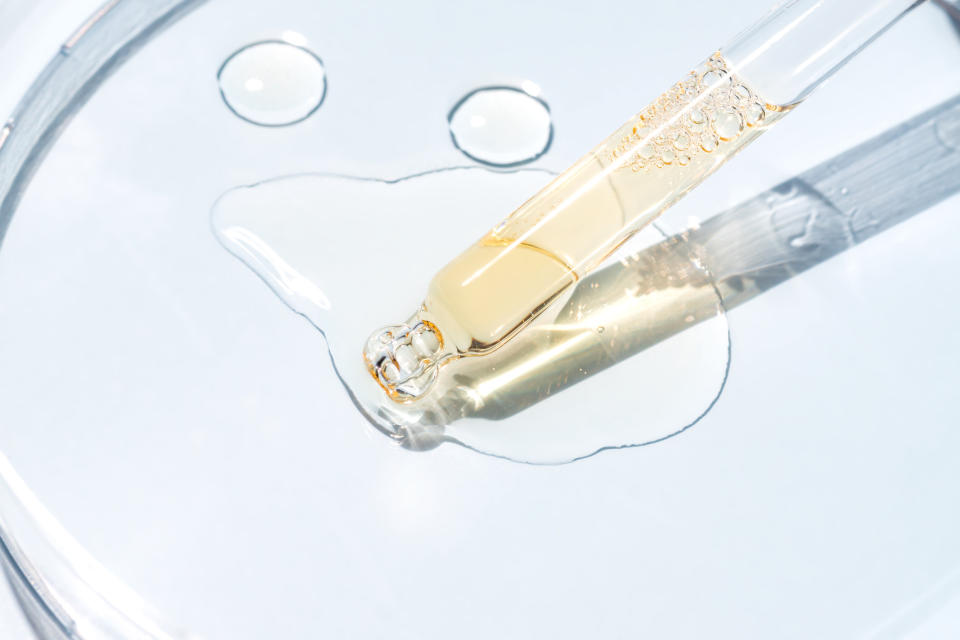
Retinol is known for its ability to improve skin texture, reduce the appearance of fine lines and wrinkles by promoting collagen production. Kiran Mian, MD, board-certified dermatologist at Hudson Dermatology and Laser Surgery in New York City, defines retinol as, “a vitamin A derivative used in skincare to aid in skin renewal, anti-aging, pigmentation and acne.”
Teresa Song, MD, board-certified dermatologist at Marmur Medical in New York City, adds that retinol “increases the turnover of skin cells to decongest pores, stimulates collagen production, as well as improves pigmentation in the skin." She mentions that retinol is a fan favorite for patients dealing with acne or anyone looking to improve the texture of their skin as well as reduce the appearance of wrinkles.
Mandy Epley, esthetician and owner of Mandy Epley Skin Studio in New Orleans, says that the best part of retinol is that it's in over-the-counter products, so you don't need a prescription. Retinol is in a number of high-end and drugstore products such as serums, toners, creams and lotions.
What are the benefits of retinol?

The key benefits of retinol are improving acne, dark spots, fine lines and wrinkles and acne post-inflammatory hyperpigmentation (PIH). “Retinol increases skin cell turnover, aiding in skin renewal," says Dr, Mian. "This improves skin texture and evens out skin tone.”
Keratinocytes are the primary type of skin cells found in the epidermis (the outermost layer of the skin). “Retinol makes keratinocytes less sticky, preventing the blockage of pores and is the first line treatment for acne," says Dr. Mian. "It also stimulates collagen production, keeping the dermis resilient and preventing fine lines and wrinkles.”
In addition, “when your pores become blocked with dead skin cells, you can develop blackheads, whiteheads and pimples," says Epley. "Retinol works by preventing clogged pores through means of turning over the cell renewal process constantly by exfoliation. With anti-aging, retinol slows down the breakdown of collagen and makes skin more elastic.”
What skin types work best for retinol?
According to all three skin pros, retinol works for all skin types. In general, Dr. Song notes that those with oilier skin will tolerate retinol easier than those with dry skin. But that doesn’t mean if you have a dry skin type you can’t use retinol. There are a few tips/guidelines for using the ingredient for different skin types.
For example, Epley suggests using creamier retinol products for those with dry, sensitive, rosacea-prone skin types and lighter, serum formulas for those with oilier skin types. It is also best to start and slowly build tolerance to the retinol over time. Dr. Mian also notes that for those with sensitive or drier skin, this may mean using the product less often (around once a week) and following up with a good moisturizer, then slowly building up from there.
Can I use retinol if I have sensitive skin?
One word of caution though: For those who have very sensitive skin, it may take some time to adjust to retinol. Dr. Song warns patients that at first there may be adverse side effects such as itching, tightness and peeling of superficial skin surfaces, along with dry skin and photosensitivity. Similarly, as the skin is turning over, there may be initial worsening of acne known as the “purge” before a fresh layer of skin settles in. But don't worry! She explains, “Once a patient is adjusted to the retinol, potential adverse effects generally improve.” So if you experience any negative side effects when you start using retinol, it is best to see if the symptoms improve before saying no to retinol altogether.
Related: 8 Best Moisturizers for Rosacea-Prone Skin, According to Dermatologists
How to use retinol for sensitive skin
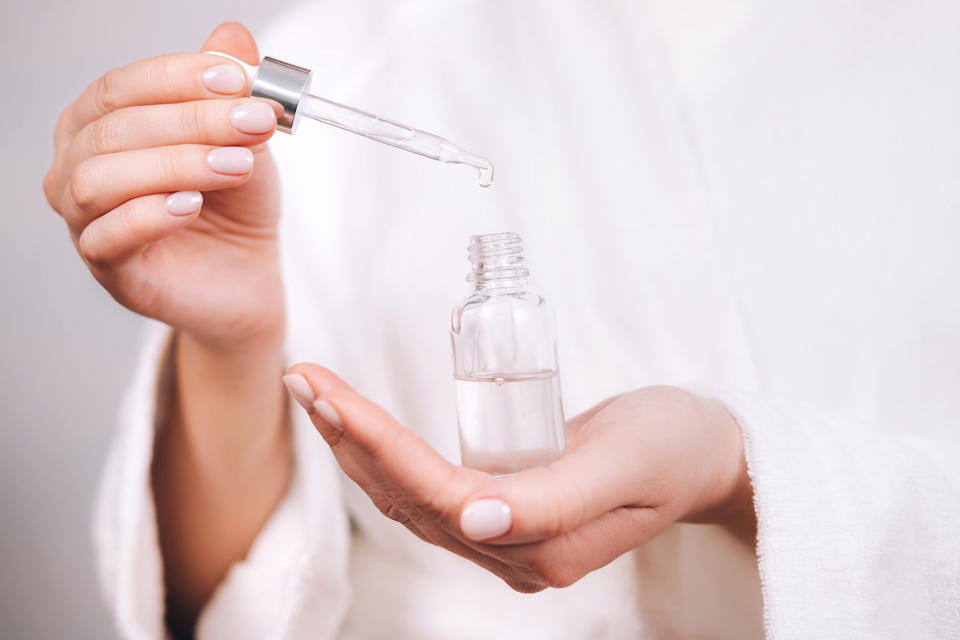
As mentioned above, it is always a good idea to start off slowly and gently — especially if you know you have sensitive skin. A little goes a long way with retinol. Dr. Song suggests starting with only a pea-size amount of a retinol product applied to the entire face evenly at nighttime about 1-2 times a week. From there, you can build up to every other night, then increase to nightly. It is important to note, “retinol should only be used in your evening routine, as it can make your skin sensitive to the sun if used during the day,” advises Epley.
It's best to have your skin care routine start with a gentle non-foaming cleanser, followed by the retinol, then a heavier moisturizer on top. If you are still experiencing irritation with retinol, Dr. Song and Dr. Mian suggest implementing the “sandwich method" of applying a moisturizer, a thin layer of retinol, then moisturizer again on top. This helps minimize irritation while still getting the benefits of retinol.
Dr. Song emphasizes the importance of avoiding using other exfoliating ingredients like alpha and beta hydroxy acids and acne active ingredients when using retinol. This can cause skin to become extremely irritated if using both together. In addition, it is important to note that you should not use retinol for up to two weeks before any laser treatments or chemical peels.
Once your skin is used to retinol and has gained tolerance for about two to three months without symptoms such as redness or flaking, Dr. Song suggests upping the retinol strength. And you can also up how often you use the ingredient as well.
Related: Here’s the Best Speedy Nighttime Routine for Glowing, Youthful Skin, According to Top Dermatologists
The 9 best retinol products for sensitive skin

PRIMERA Youth Radiance Vitatinol Serum
Epley suggests this product as it works for all skin types and also contains vitamin C. She notes it uses "a unique ratio that offers double the benefits but minimizes skin irritation.”
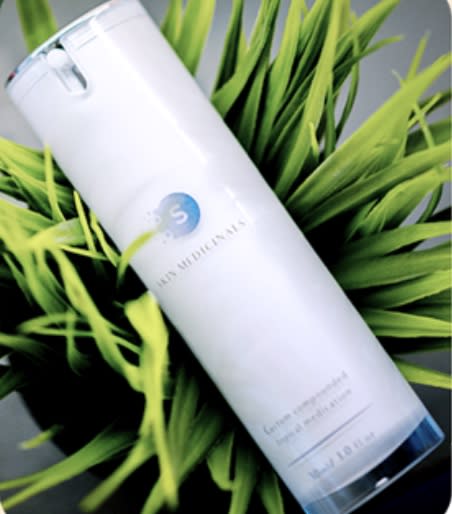
Skin Medicinals Anti-Aging skin care
Dr. Mian recommends this formula as it incorporates hydrating ceramides and antioxidant-rich turmeric. This brand also offers customization options so retinol formulas can meet your skin's needs.
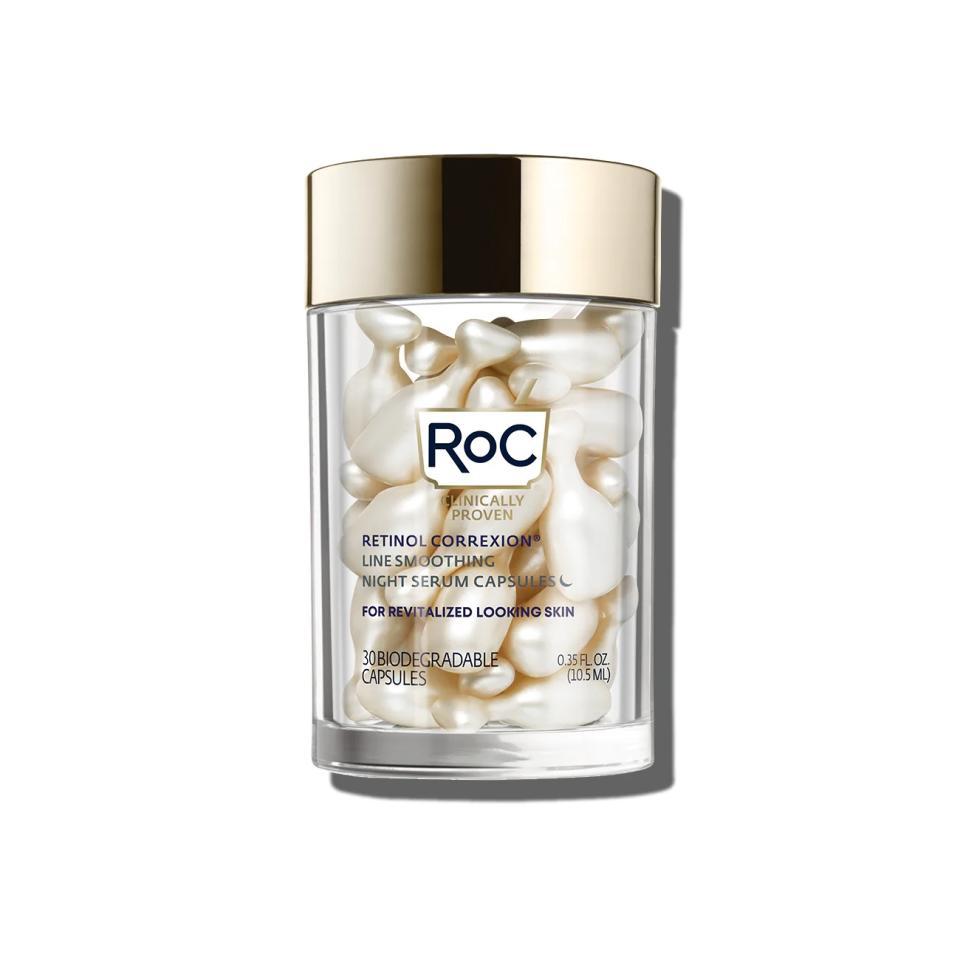
RoC Corrextion Line Smoothing Night Serum Capsules
Another gentle formula that Dr. Mian likes it this one from RoC. It's an encapsulated form of retinol, which gets delivered to skin slowly over time to minimize irritation.
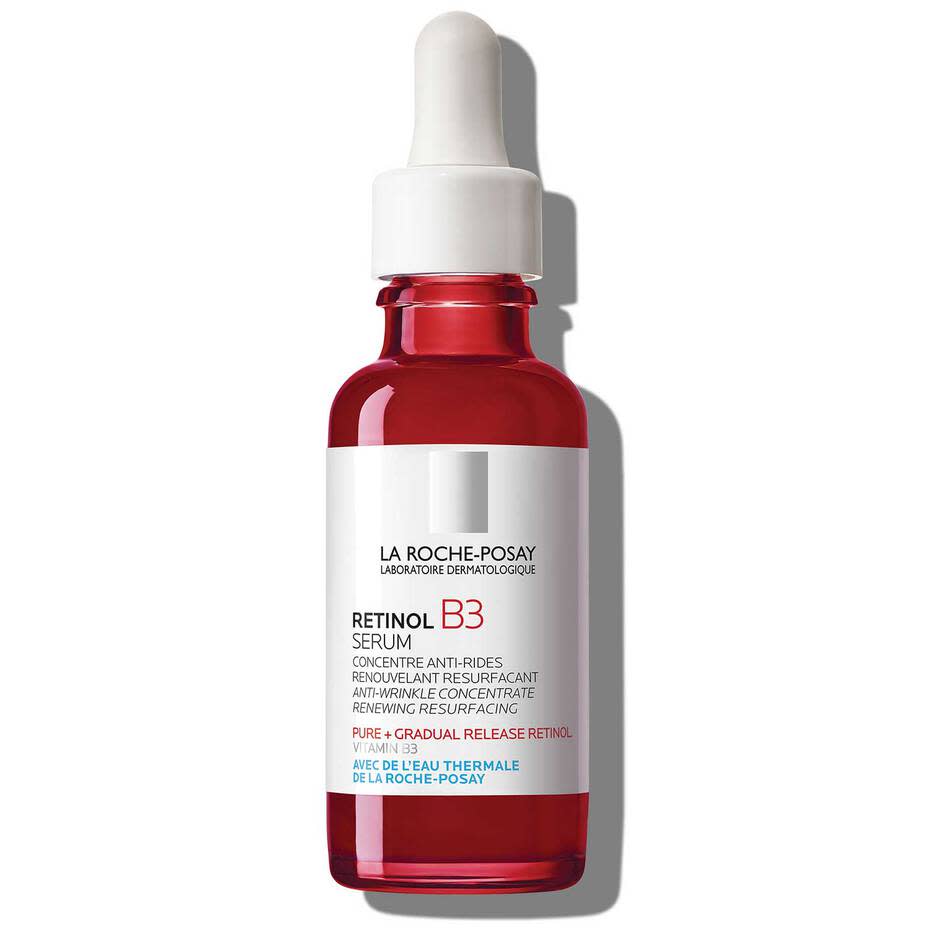
La Roche-Posay Retinol B3 Serum
Dr. Song suggests this lightweight serum and notes that it quickly absorbs into skin. It also contains soy and niacinamide to help with skin sensitivity, as well as citric acid for its antioxidant effects.
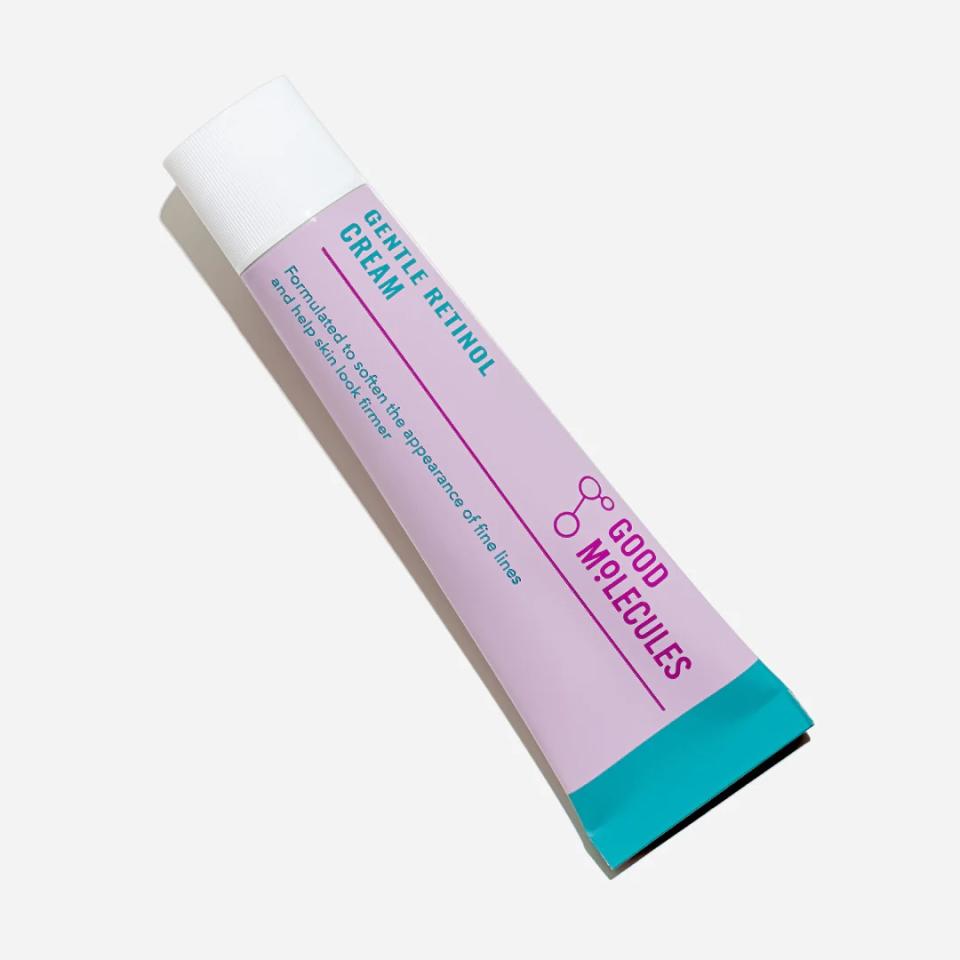
Good Molecules Gentle Retinoid Cream
For an extra gentle formula (that's also safe to use during pregnancy), Dr. Song loves this product. It's rich in retinol and bakuchiol, a natural alternative retinoid that's been show to reduce the chance of causing irritation to skin.
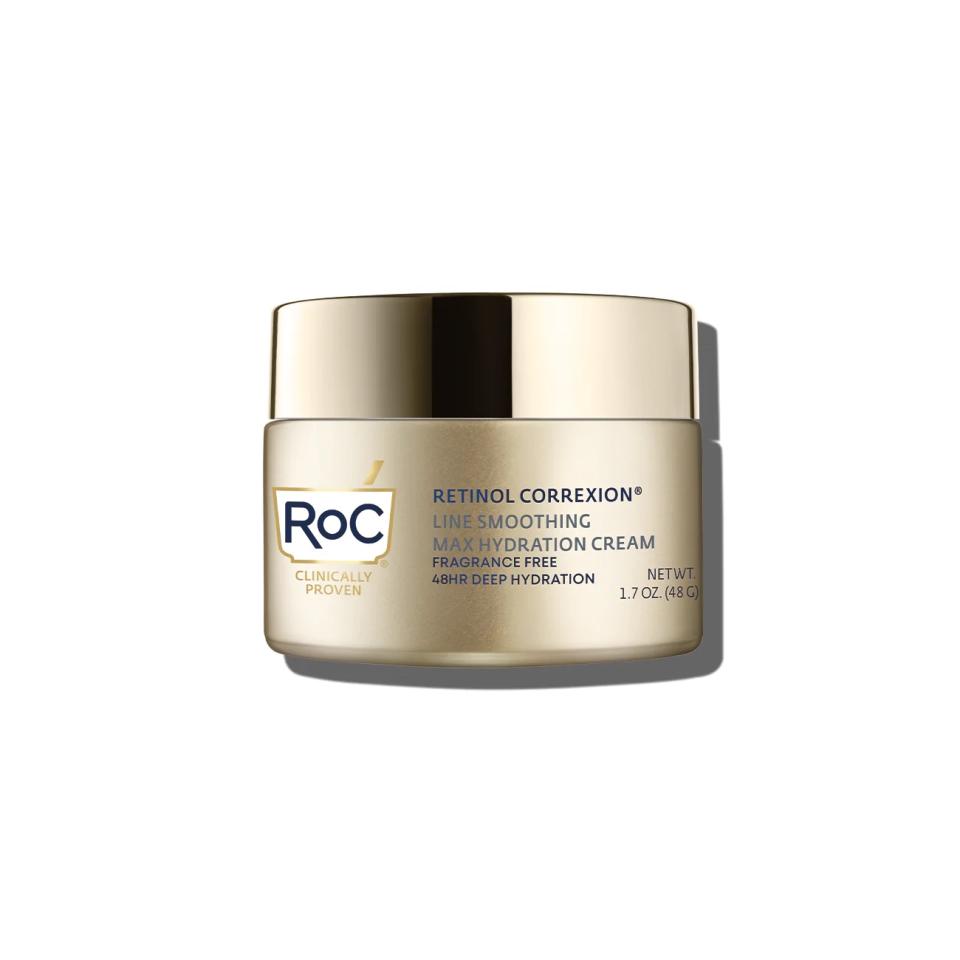
RoC Retinol Correxion Line Smoothing Max Hydration Cream Fragrance Free
If you're a beginner to using retinol, Dr. Song recommends this night cream. It's hydrating cream base allows for a slower delivery of retinol and less irritation.
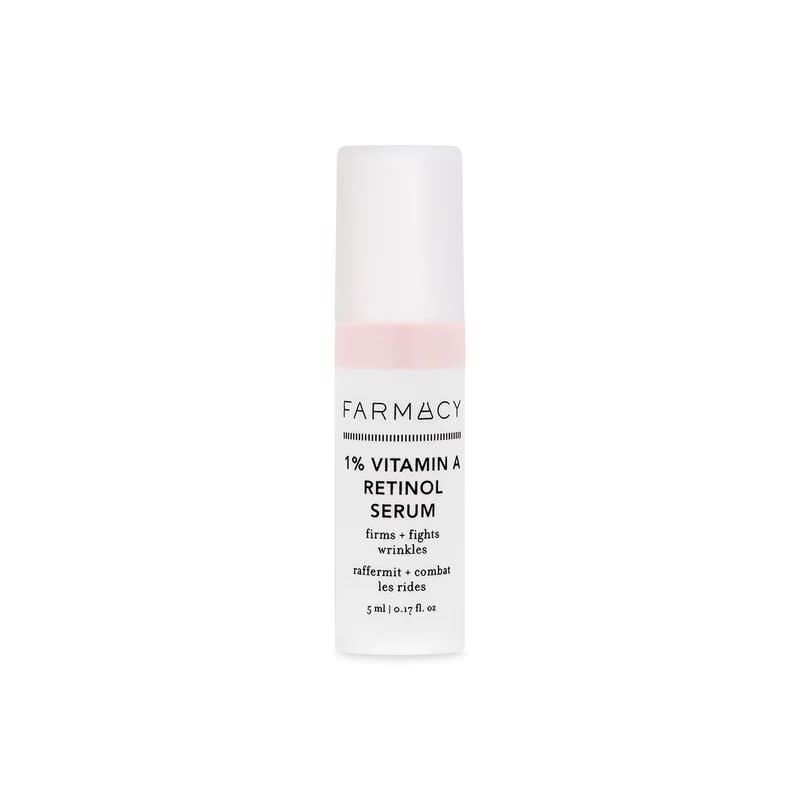
Farmacy 1% Vitamin A Retinol Serum
Rich in antioxidants, Kalahari melon seed and raspberry seed oils, this retinol serum is beloved by women with sensitive skin. That's because besides firming skin, it soothes and replenishes moisture — it's a win-win!
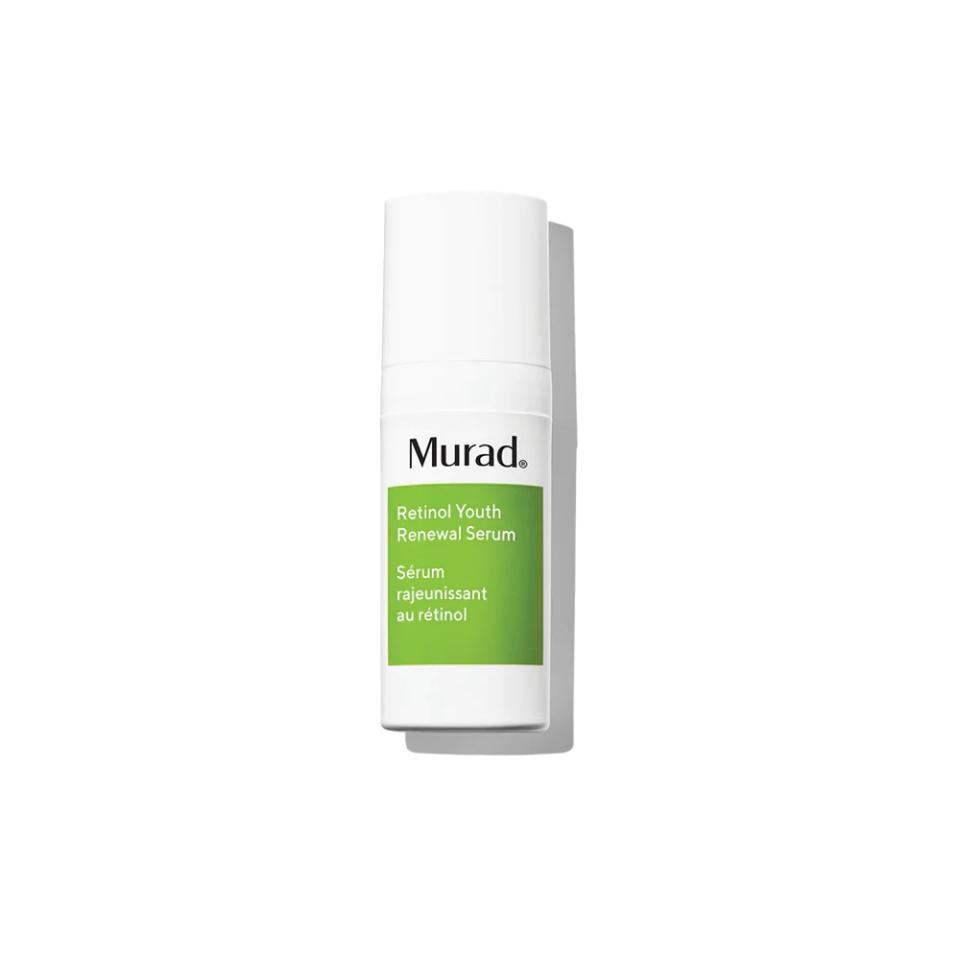
Murad Retinol Youth Renewal Serum Travel Size
We love this travel size retinol for use on-the-go. This product minimizes the signs of aging with a blend of retinol, hyaluronic acid and tomato extract so skin looks youthful in no time.
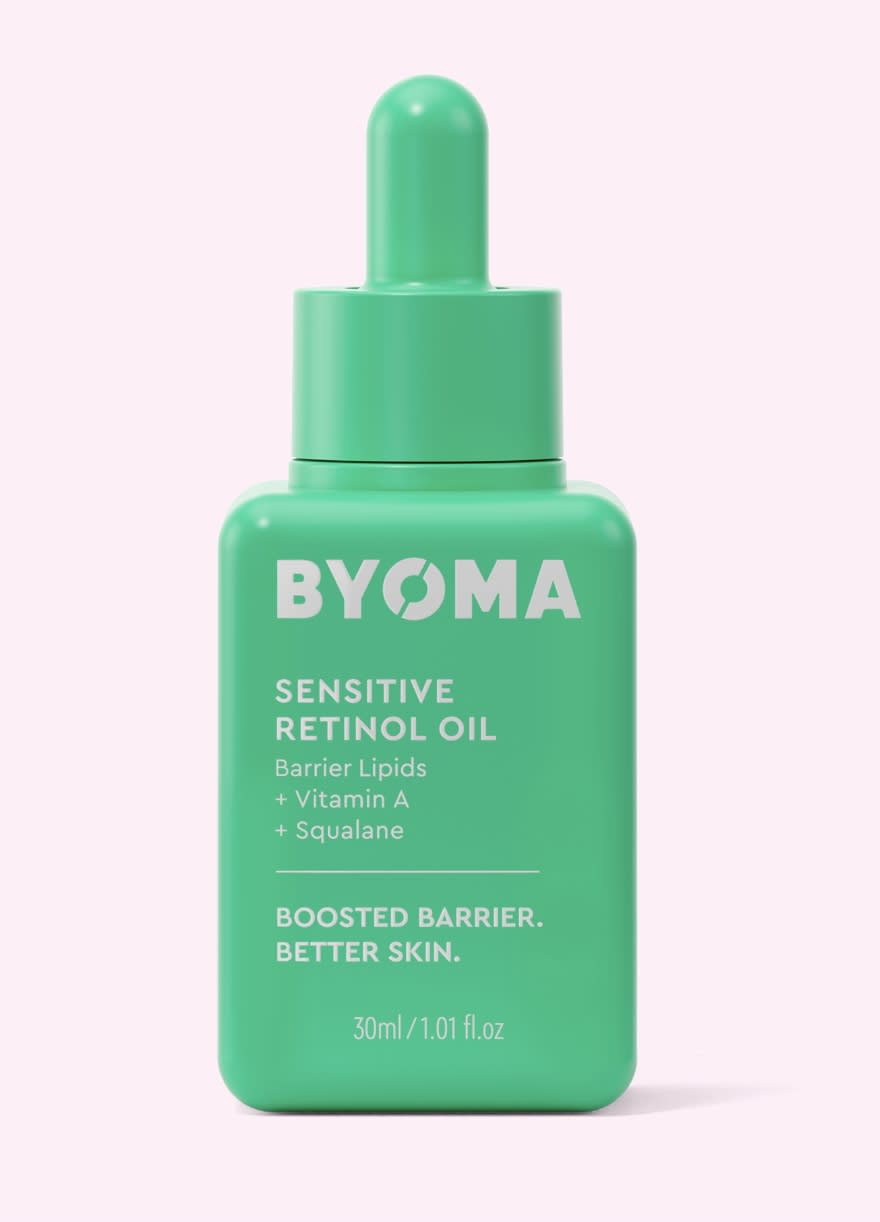
This gentle yet effective formula is specifically great for those with sensitive skin. It also contains squalane, which moisturizes and strengthens the skin barrier to thwart irritation.
What to do if you have a reaction to retinol
You may see a negative reaction in the first few months using retinol, as mentioned previously. Epley says skin can actually look worse or break out in the beginning of using the ingredient. She suggests sticking with it but switching to using retinol less often.
If your skin is still irritated after frequent retinol use, you should take a break from using the ingredient. Both Dr. Mian and Dr. Song advise simplifying your skincare routine with a gentle cleanser, like Cetaphil Gentole Skin Cleanser, a hydrating moisturizer and a mineral sunscreen. Once your skin feels back to baseline, you can restart using retinol slowly, using the sandwich method mentioned previously. Dr. Mian actually notes that, “some flaking with retinol is normal and in fact even good — it means it’s working!”
For more skin care secrets, click through these stories:
These At-Home Facial Steps Will Leave You With Youthful, Glowing Skin — For Pennies!
The Icy Secret to Glowing Skin, According to Top Skincare Experts
Manuka Honey Is the Natural Cure for Inflamed, Dull and Wrinkly Skin — Here’s How to Use It
